Vassar’s Newest Professors Hail from Burbank to Bulgaria
Fifteen new tenure-track faculty members—the largest such cohort since 2008—launched their Vassar careers during the current academic year.
“It is a great honor to be leading the faculty at a time where we get to welcome such an amazing group of tenure-line faculty,” said Dean of the Faculty Brian Daly. “These 15 faculty members will make an immediate and transformative impact on Vassar with their teaching and scholarly work. I look forward to learning more about their work in the years ahead.”
Learn more about the newest members of Vassar’s academic community:
- Petya Andreeva
(Department of Art) - Taylor Teitsworth
(Chemistry) - Pier Carlo Tommasi
(Japanese) - Logan Stapleton
(Computer Science) - Tania Barrenechea Barreda
(Drama)
- Harrison Shieh and Zhengren Zhu ’15
(Economics) - Pasquale Toscano
(English) - Fabio Andrade
(Film) - Yu-chi Chang
(History) - Robin Belton
(Mathematics and Statistics)
- Shivani Radhakrishnan
(Philosophy) - Emily Nardoni
(Physics) - Rebecca Peretz-Lange
(Psychological Science) - Stephane Andrade
(Sociology)
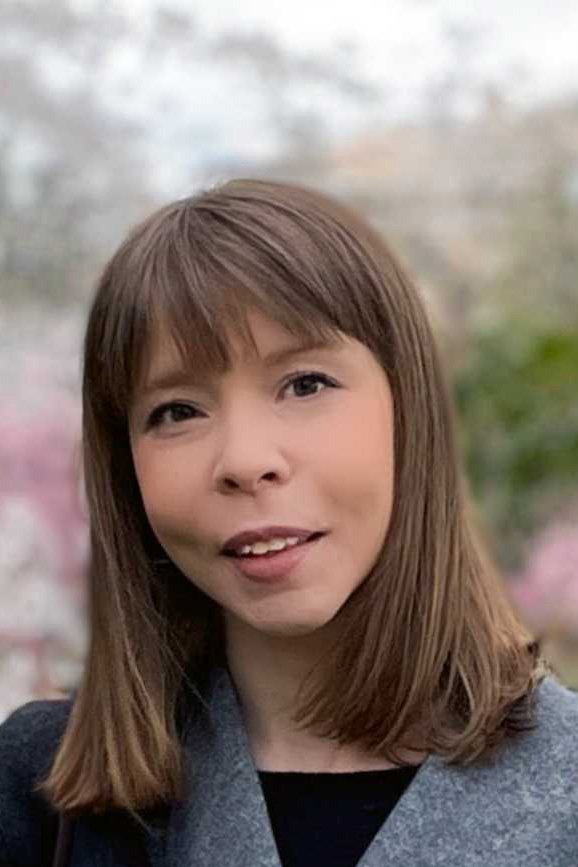
Petya Andreeva
Assistant Professor of Art
Education: BA, Colby College; PhD, University of Pennsylvania
Primary areas of research or creative work: I am an art historian specializing in Chinese and Central Asian art and archaeology from the Iron Age to the Mongol period, with a special focus on intercultural exchange. My research is interdisciplinary and draws from methods in social and cultural anthropology, cultural history, and sinology. I am especially fascinated by the art produced along China’s frontiers, as well as the dissemination of ideas and objects across pre-modern Eurasian trade networks such as the Silk Roads. My most recent book explores the material and visual cultures of nomadic societies across Eurasia.
Description of one course: This semester I am teaching Arts of China, a survey of Chinese art from prehistory to the early 20th century. The course examines a wide array of traditional art forms such as jade, silk, porcelain, ritual bronzes, ink painting, Daoist architecture, Confucian murals, and Peking opera. Students are also exploring the transfer of foreign elements into Chinese art and aesthetics in the wake of China’s interactions with various entities across Asia. We follow in the footsteps of monks, merchants, ambassadors, and warriors and explore the artistic innovations they helped disseminate across the Chinese empire. Why do we find Persian textiles and Roman glass in ancient Chinese tombs? How do we account for discoveries of Chinese ceramics as far as Madagascar? What was the impact of Sino-Japanese exchange on painting and garden design? How did the arrival of Buddhism transform Chinese material culture? What changes did Chinese painting undergo under Mongol patronage? Through such inquiries, we view and discuss Chinese art in the context of an increasingly global Afro-Eurasia.
Hometown: Burgas, Bulgaria
Hobbies: Reading and watching historical murder mysteries, long walks in the park, traveling, anything to do with Halloween
Why I chose Vassar: My decision to come here mainly stems from my outstanding undergraduate experience at a similar institution—Colby College. Being an international student at Colby opened so many new doors to me, and had a truly transformative impact on my personal and professional goals and ideals. I was inspired to pursue a career in higher education by my Colby professors, and I have always looked forward to returning to my true intellectual home—the liberal arts—and giving back to the community. At Vassar, I am especially looking forward to getting to know the international student population and am always available to provide support in any way I can!
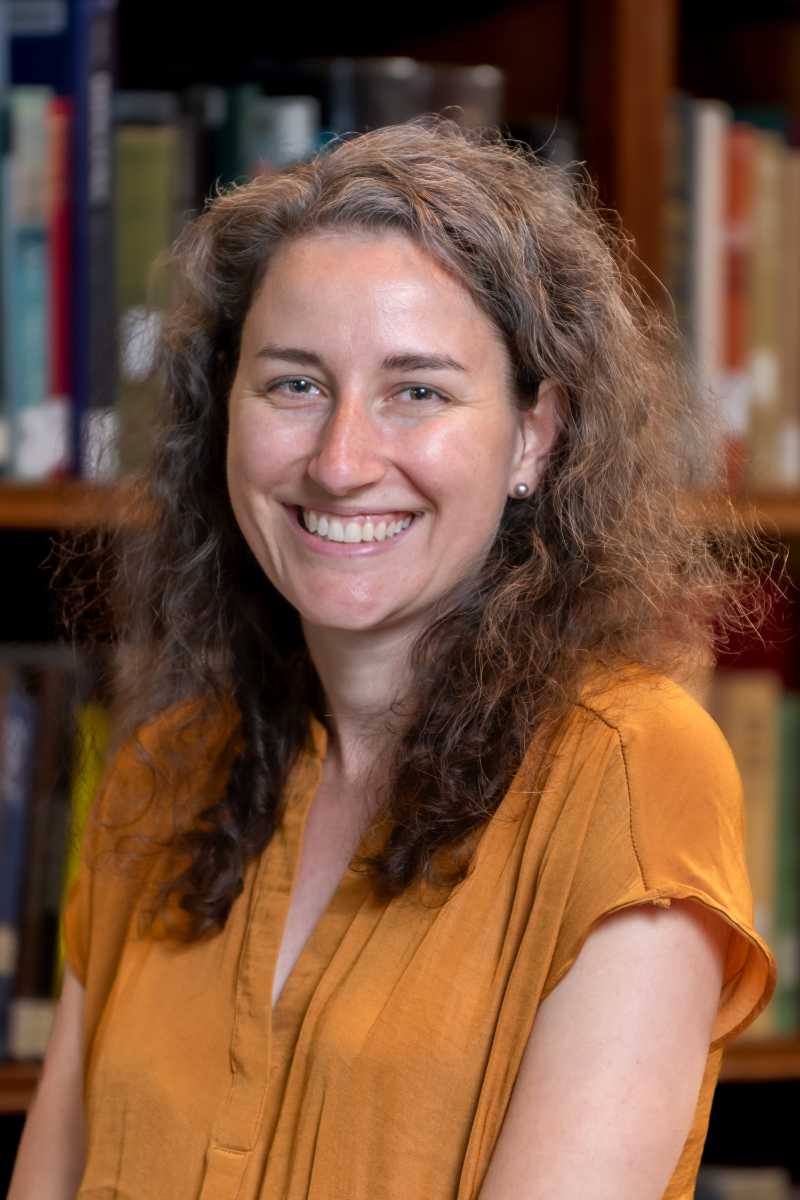
Taylor Teitsworth
Assistant Professor of Chemistry
Education: BS, Pennsylvania State University; PhD, University of North Carolina at Chapel Hill
Primary areas of research or creative work: My research focuses on the modification and characterization of surfaces, especially their electrochemical properties. We can use this information to help design better devices for catalysis, sensing, energy conversion, etc.
Description of one course: Starting this spring, I will be teaching Instrumental Analysis (CHEM 362), which covers the various types of scientific instrumentation used to analyze/characterize chemical samples. Students will learn about how those tools work and how to interpret the data collected. I am really excited to teach this course because the knowledge and skills gained are so practical and useful, especially for anyone who wants to work in a lab!
Hometown: Lancaster, PA
Hobbies: Hiking/camping, disc golf, cooking
Why I chose Vassar: I was really impressed by how much support Vassar offers to its students and faculty as they learn together in the classroom and through independent research. I am looking forward to getting to know the many curious, genuine, and intelligent members of the Vassar community!
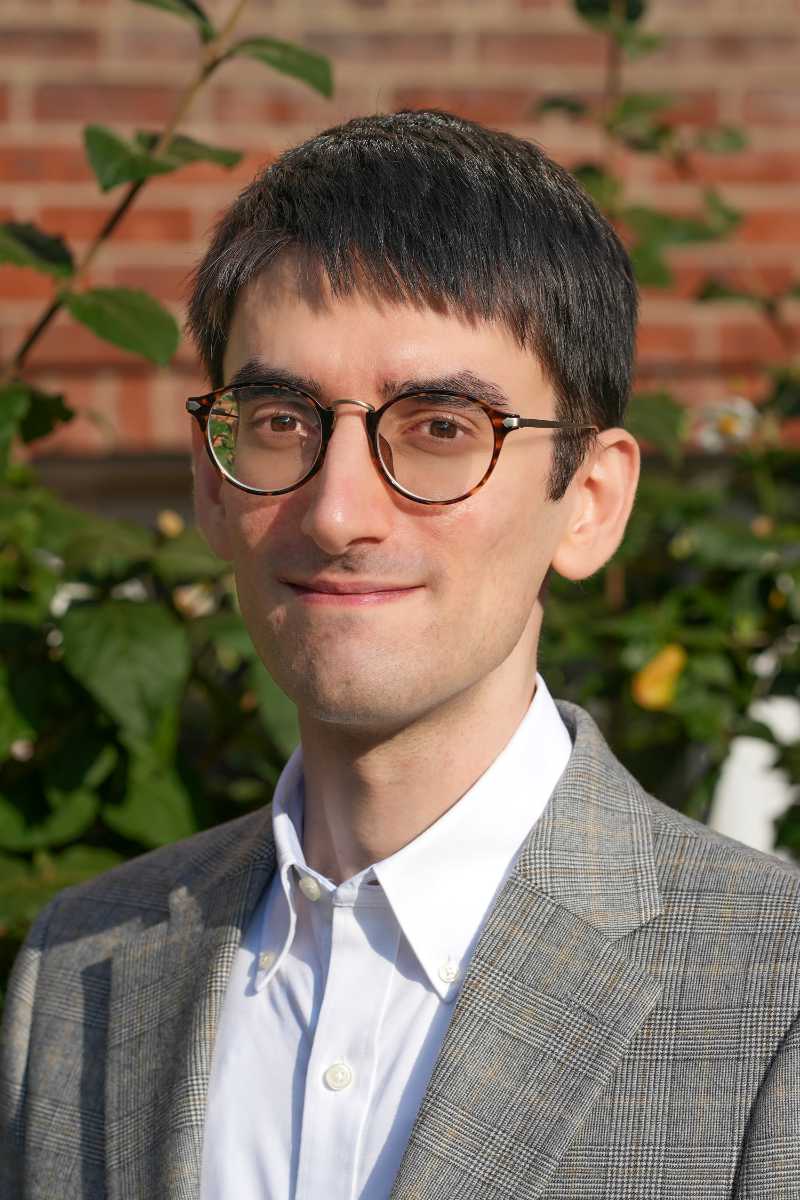
Pier Carlo Tommasi
Assistant Professor of Chinese and Japanese
Education: BA, MA, PhD, Ca’ Foscari University of Venice
Primary areas of research or creative work: My research focuses on the intersection of warrior culture and self-representation in premodern Japan, with my current book project casting new light on the life narratives of provincial Japanese authors.
Description of one course: In addition to intermediate and advanced Japanese language classes, I plan to offer a course in Spring 2025 titled Tradition and Creativity in Japanese Culture, which will provide students the opportunity to engage critically and creatively with East Asian classics. Participants will journey through the history of Japan by exploring texts from the eighth to the 20th century, covering genres as varied as poetry, novels, diaries, war tales, drama, and film. We will examine how these works have transcended national boundaries and media formats, continuing to influence lives to this day. Special attention will be given to the techniques of rewriting, remediation, and reenactment—fundamental staples in the artistic traditions of this country. The course features a combination of lectures, student-led discussions, creative assignments, and a collaborative student presentation—all aimed at recasting the Japanese past as a source of invention and self-reflection. I hope Vassar students will enjoy it!
Hometown: I was born and raised in a small town in Tuscany, in the northwestern province of Lucca, Italy. Though a bit off the major tourist paths, it’s a charming place rich in art and history, nestled between the Tyrrhenian Sea coastline and the Apuan Alps. The locals—myself included—take great pride in their hometown.
Hobbies: I have been practicing Japanese martial arts since my teenage years. I am also an amateur pianist, avid museum-goer, and a fan of films and TV series.
Why I chose Vassar: I chose Vassar because of its vibrant academic environment, which aligns with my passion for teaching, mentoring, and interdisciplinary research. My previous experiences engaging with students and the local community deepened my appreciation for fostering critical thinking and creativity, particularly through hands-on projects with ancient books and manuscripts. Vassar’s commitment to these values, especially with on-campus resources like the Frances Lehman Loeb Art Center, makes it an ideal setting for my work. I also appreciate the College’s strong support for research and the opportunity to collaborate across departments, particularly within the Asian Studies and the Medieval and Renaissance Studies programs.
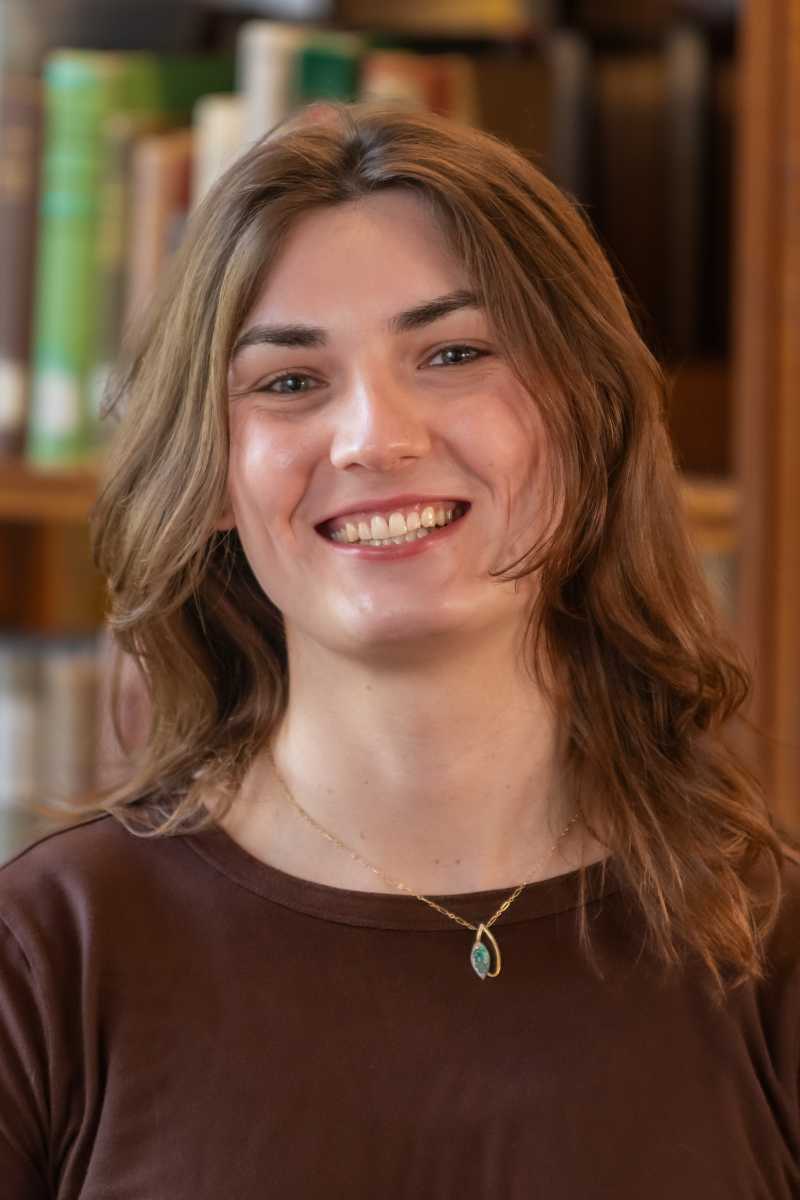
Logan Stapleton
Instructor, Department of Computer Science
Education: Currently finishing PhD in computer science at University of Minnesota; BA in philosophy and mathematics, Macalester College in Minnesota.
Primary areas of research or creative work: My work focuses on new machine-learning-based technologies used for suicide prevention, mental health support, child welfare (family policing), and by local governments. I’m concerned with how these technologies end up enacting systemic violence like policing, incarceration, racism, or poverty. I’m also interested in how we might design technologies differently (or not at all). I usually publish academic research around human-computer interaction (HCI), machine learning, artificial intelligence (AI), critical algorithm studies, and computer ethics.
Description of one course: I’ll be teaching CMPU 100, a new introductory data science course with Python, in the fall and spring. I’m also working on a new course for the spring, centered around data science, AI, and the social and political implications of these technologies.
Hometown: St. Paul, MN
Hobbies: My main hobby is just being with my partner and our cats, Pepe (short for Cacio e Pepe) and Buca (short for Buca di Beppo). I like very relaxed activities—walking, biking, reading, swimming, eating, and sitting—preferably with loved ones. I also watch an absurd amount of TV. (I just started Grey’s Anatomy.) Since moving here, I’ve been enjoying walking around the mountains and trying to find lakes to swim nearby.
Why I chose Vassar: I really appreciated many of the students I met when I interviewed here last fall. When I was in college (also a liberal arts school), I had a couple professors who really respected me and supported me and my ideas as a peer. That helped me learn to respect myself and become the person I am today. I hope I’m able to give similar respect and support to students here, many of whom seem like very capable and lovely people I’m excited to be in community with.
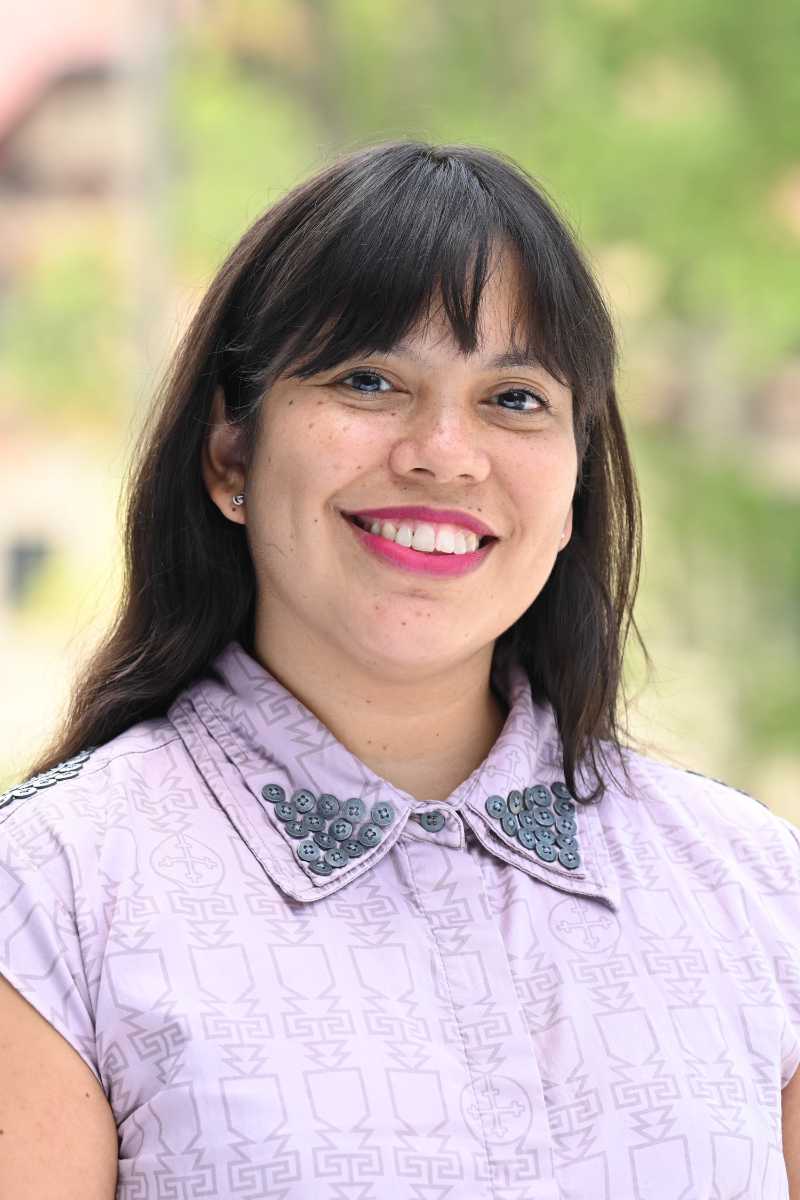
Tania Barrenechea Barreda
Assistant Professor of Drama
Education: BA, Pontificia Universidad Católica del Peru; MFA, Pennsylvania State University
Primary areas of research or creative work: Scenic design, digital design, drafting and rendering, architecture, space and light. My latest scenic design projects can be found on my design website at www.taniabarrenechea.com.
Description of one course: Intro to Theatrical Design focuses on sparking creativity and exploring the world of design in theater through scenic, costume, and lighting design projects.
Hometown: Lima, Peru
Hobbies: I really enjoy all crafting and art-related activities, like painting and outdoor sketching, but I have also been taking classes in aerial circus arts for the last two years. Next, I want to sign up for ice-skating classes!
Why I chose Vassar: I came to interview at Vassar and instantly felt a connection to my peers and the school. I love the dedication to the students and how excited they are to learn and try things. There is a real drive and energy that I felt really drawn to from the start. As an international faculty member, it is sometimes hard to be so far away from my family back in Peru, but there is a small pocket of them close by that made this place the perfect choice.
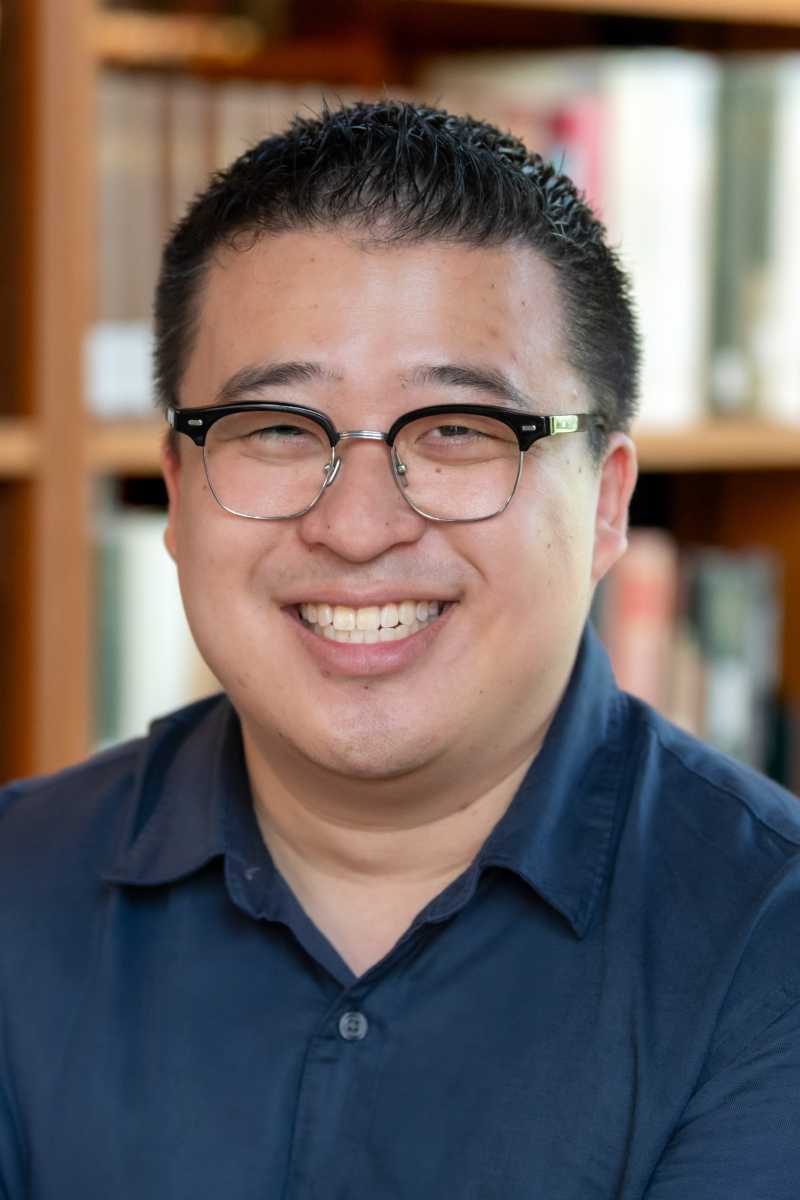
Harrison Shieh
Assistant Professor of Economics
Education: BA, University of California, Irvine; MA, California State University, Fullerton; MA, PhD, University of California, Santa Cruz
Primary areas of research or creative work: I am an applied macroeconomist studying monetary policy, international finance, macrofinance, and the Chinese economy.
Description of one course: I am teaching Macroeconomic Theory this fall, a more structured and rigorous exploration of macroeconomics, where I’m covering topics in economic growth, monetary policy, fiscal policy, unemployment, and financial crises.
Hometown: Torrance, CA
Hobbies: Photography, cooking, travel, piano, and going down the rabbit hole of Korean dramas.
Why I chose Vassar: The students and faculty. I wanted to be in a community of driven and engaged students and scholars on a beautiful campus—but also to see what it’s like to endure East Coast winters as a California kid.
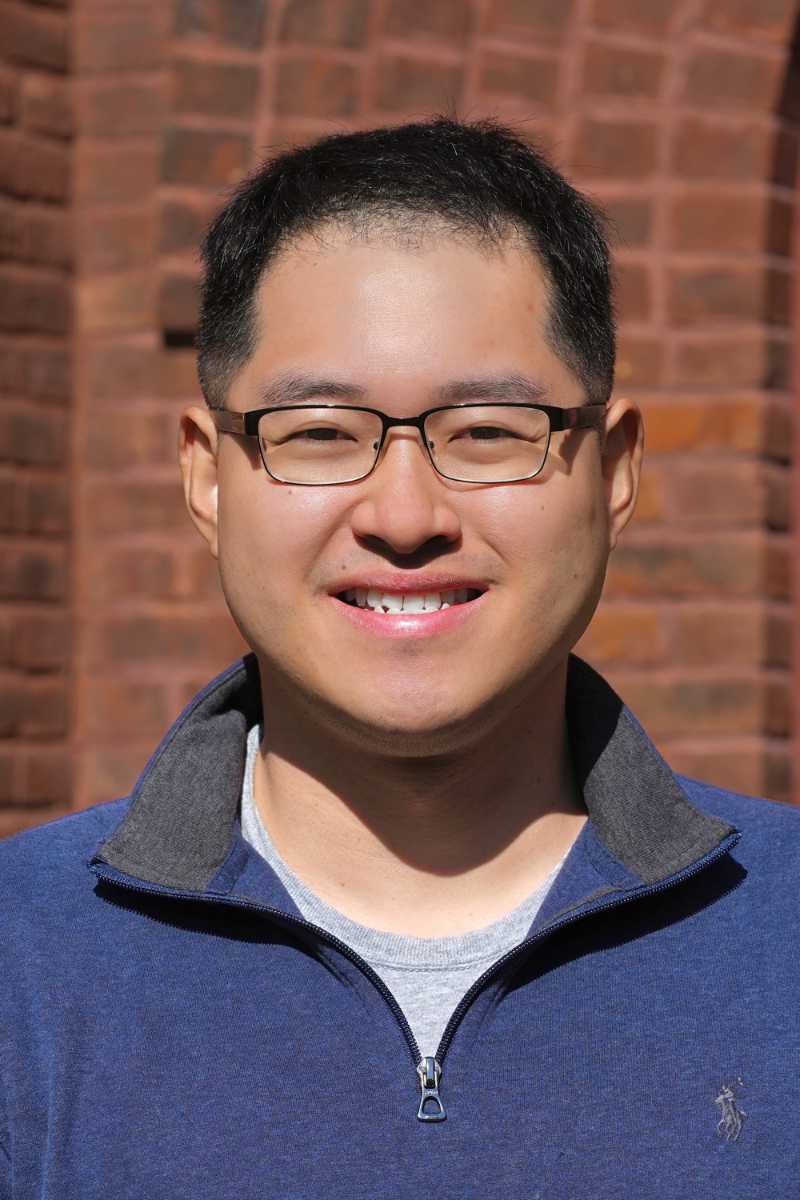
Zhengren Zhu ’15
Assistant Professor of Economics
Education: BA, Vassar College; MA, MPhil, PhD, Yale University
Primary areas of research or creative work: Labor economics, with a particular focus on the economics of education
Description of one course: Econometrics—using statistical methods to answer important policy and social questions.
Hometown: Mostly in Beijing, China. Born in Japan, also spent some time in Boston and Norway.
Hobbies: Hanging out with my wife and two-year-old son doing random things.
Why I chose Vassar: There’s nothing like coming back to one’s undergrad institution to teach!
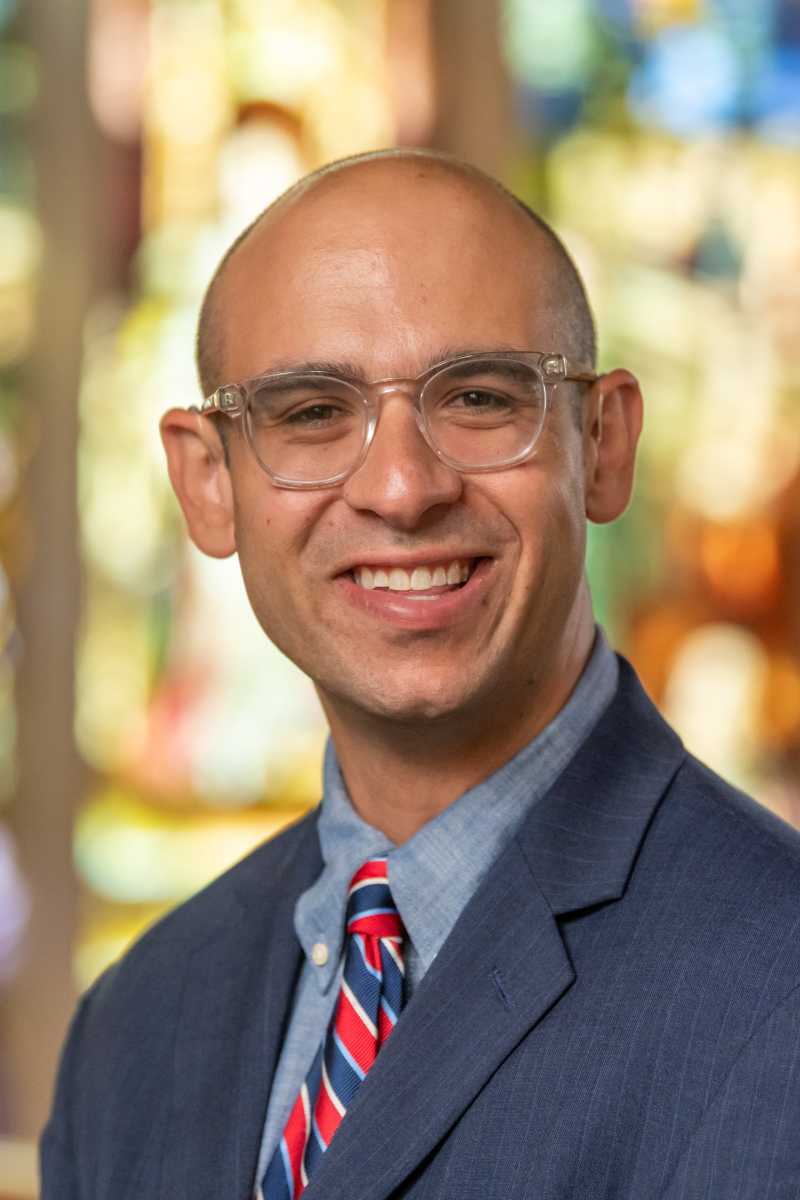
Pasquale Toscano
Instructor, Department of English
Education: BA, Washington and Lee University; MSt, University of Oxford; MA, PhD, ABD, Princeton University
Primary areas of research or creative work: Renaissance/early modern English literature, Milton, epic poetry, disability studies, and the reception of ancient Greco-Roman literature/culture; I also write think pieces and creative nonfiction.
Description of one course: My section of ENGL 101 (on the art of reading and writing) is called Succession, from Tudor England to HBO. It focuses on artistic engagements with the perennial problem of handing over control, and with leaders refusing—or, conversely, being forced—to do so. We’ll be discussing why writers (and filmmakers) so often return to power struggles for material; how their eras’ cultural anxieties about succession can illuminate works we thought we knew well; and what humanists can contribute to debates about the transfer of power that face the world today. In the first half of term, we’ll set our readings against the historical backdrop of very real leaders—like the trailblazing frenemies Elizabeth I and Mary, Queen of Scots—who navigate the chaos of being on top with literary flair of their own. Meanwhile, we’ll consider how various concerns—over gender, ability, sexuality, race/ethnicity, religion, and more—often shape our ideas of who is fit to rule. In the second half, we’ll keep this question in mind while thinking more about succession’s personal stakes: the burdens of carrying on a family name or the pressures of preserving a loved one’s legacy.
Hometown: Kettering, OH
Hobbies: Theater, traveling, reading a good novel, catching up on TV shows, checking out new restaurants/coffee shops
Why I chose Vassar: As a product of a liberal arts institution myself, I was taught to value the importance of a close-knit campus community, opportunities for undergraduate research, direct engagement between students and faculty members, and inter/multi-disciplinary teaching and scholarship. It’s no surprise, then, that I jumped at the chance to teach at a place prioritizing these things. When I visited, too, Vassar seemed to be engaged in exactly the kind of balancing act I was looking for. It felt small in the sense that folks from different departments knew, and were talking to, one another; students were exchanging hellos on the way to class; and the classrooms they eventually filed into weren’t huge lecture halls. But the College felt big in the dimensions of its curriculum; the kinds of research projects it was supporting; the excitement about disability studies/justice that kept coming up; the creativity and intellectual curiosity of the students (in a first, one told me she wanted to read more Donne!); and the generosity and genuine interest with which I was shown around—all of which has continued to define my first few weeks here. (Plus, there’s that beautiful library: icing on an already huge cake!)
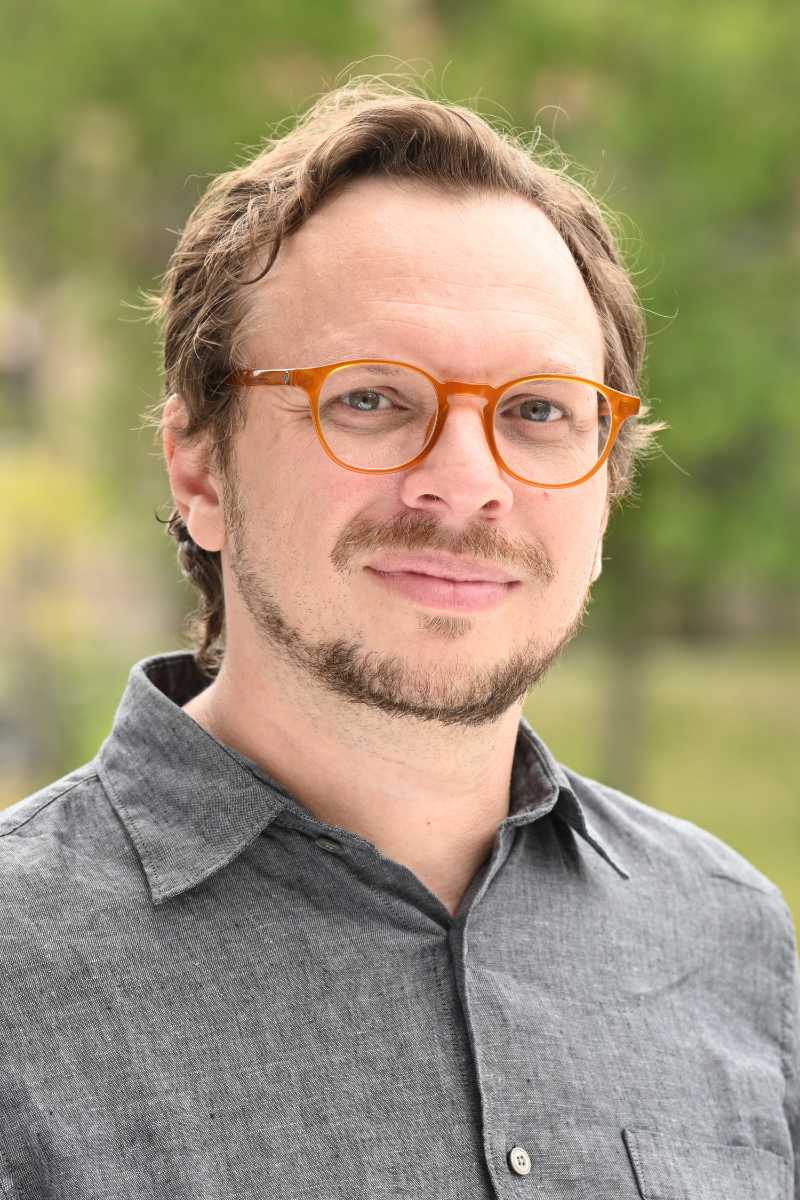
Fabio Andrade
Assistant Professor of Film
Education: BA, Pontifícia Universidade Católica do Rio de Janeiro; MFA, Columbia University; MPhil, PhD, New York University
Primary areas of research or creative work: Latin American film and video
Description of one course: I'm teaching a first-year writing seminar on the theme Mise en scène—an important concept in filmmaking and film studies that is used to describe how visual and aural elements are placed in a composition. Students will develop an awareness of strategies of the construction of moving images and sounds, while translating that to another form of expression: writing.
Hometown: Barra Mansa, a small town two hours away from Rio de Janeiro, Brazil, where I would eventually relocate for undergrad. (One curiosity is that for most of my teenage years, there was not a single functioning film theater in my hometown.)
Hobbies: I spend a lot of time studying audio engineering.
Why I chose Vassar: From day one, I have felt extremely welcome by my colleagues and the Vassar community as a whole, and a good work environment is essential for me to be able to do my work to the best of my abilities. As a side anecdote, I had taken the TOEFL in Poughkeepsie when I was applying for a PhD, which included a visit to the Loeb the night before the exam. Coming here again when I was just about to complete that degree felt somewhat mystical—as does the fact that I am now living and working here full time.
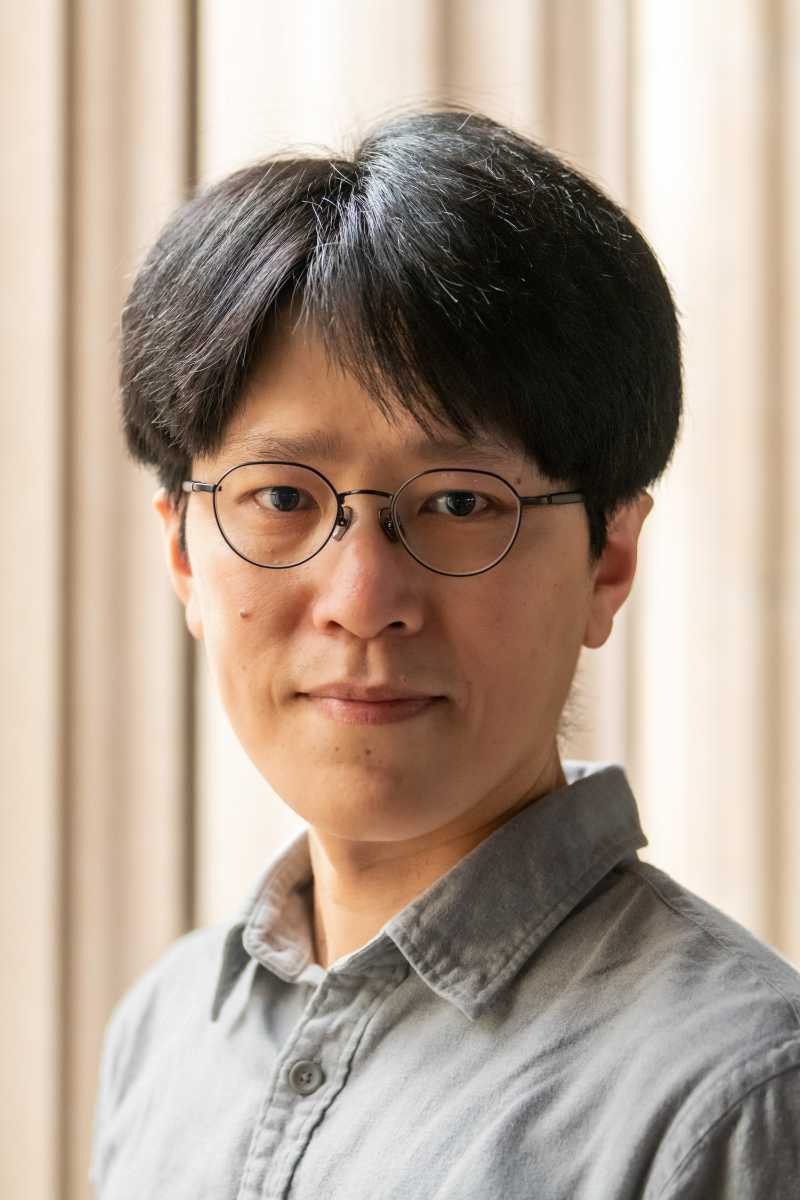
Yu-chi Chang
Assistant Professor of History
Education: BA, MA, National Taiwan University; MA, PhD, Brown University
Primary areas of research or creative work: Modern Chinese history
Description of one course: I am teaching Warfare in Modern China, which explores the origins, implications, and ramifications of warfare in China from the 19th to the 20th centuries. We investigate everyday experiences of people, including mass mobilization, displacement, violence, and trauma. Additionally, we look at how warfare shaped gender concepts, nationalism, popular culture, identity, and historical memory.
Hometown: Kaohsiung, Taiwan
Hobbies: Watching baseball, traveling, movies, Lego, my cat
Why I chose Vassar: I appreciate the small-class setting at liberal arts colleges, which allows for deeper intellectual engagement and immersive learning. Beyond teaching, Vassar is also a place that genuinely values and supports faculty research. The History Department is a warm and supportive community, and I feel very fortunate to work with all my colleagues!
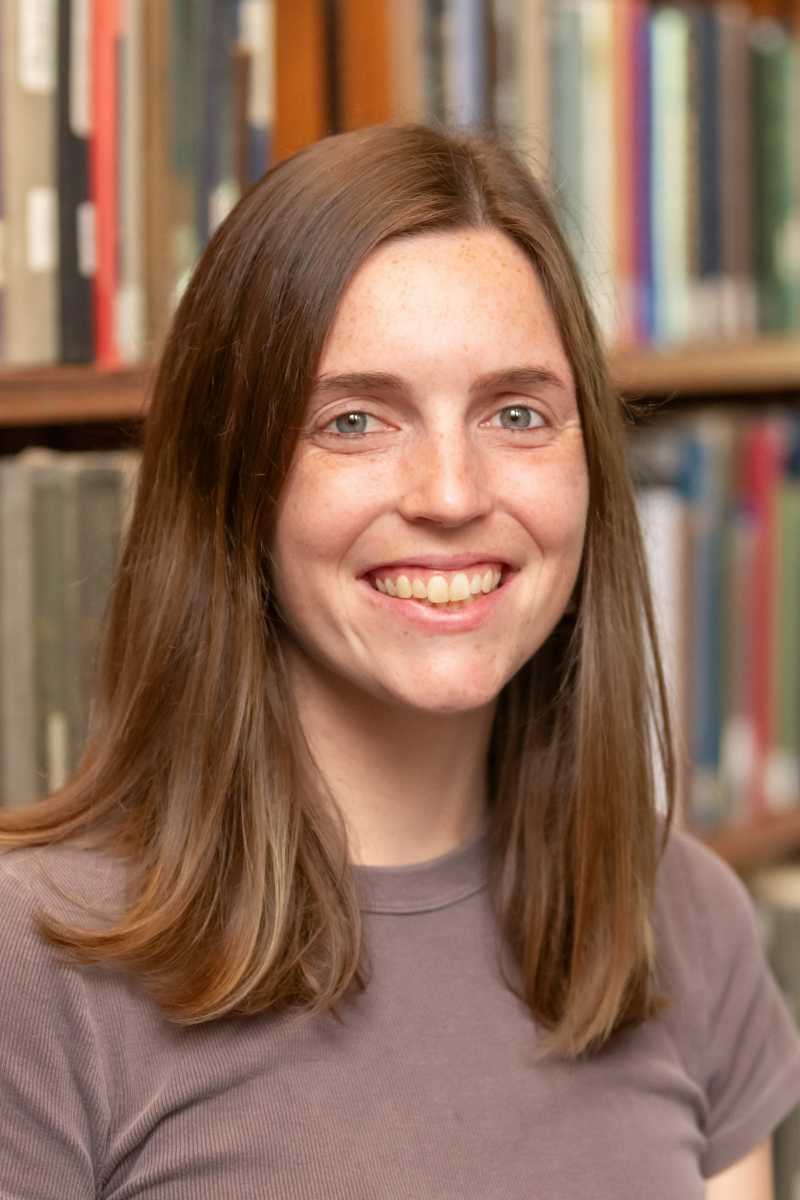
Robin Belton
Assistant Professor of Mathematics and Statistics
Education: BA, Kenyon College; MS, PhD, Montana State University
Primary areas of research or creative work: Topological and geometric data analysis. My research addresses questions on how to summarize the “shape” of data. I focus on time series data and data visualization with applications to biological network analysis.
Description of a course: This fall I am teaching MATH 240: Introduction to Statistics. This is an application-oriented introduction to modern statistical inference.
Hometown: Millersville, MD
Hobbies: Trail running, reading, and art
Why I chose Vassar: I have been inspired by teacher-scholars at liberal arts colleges for a long time, first as an undergraduate student at Kenyon and more recently as a postdoctoral fellow at Smith. Vassar is an ideal place for me to grow in my teaching and scholarship. I look forward to contributing and being part of this community in the beautiful Hudson Valley.
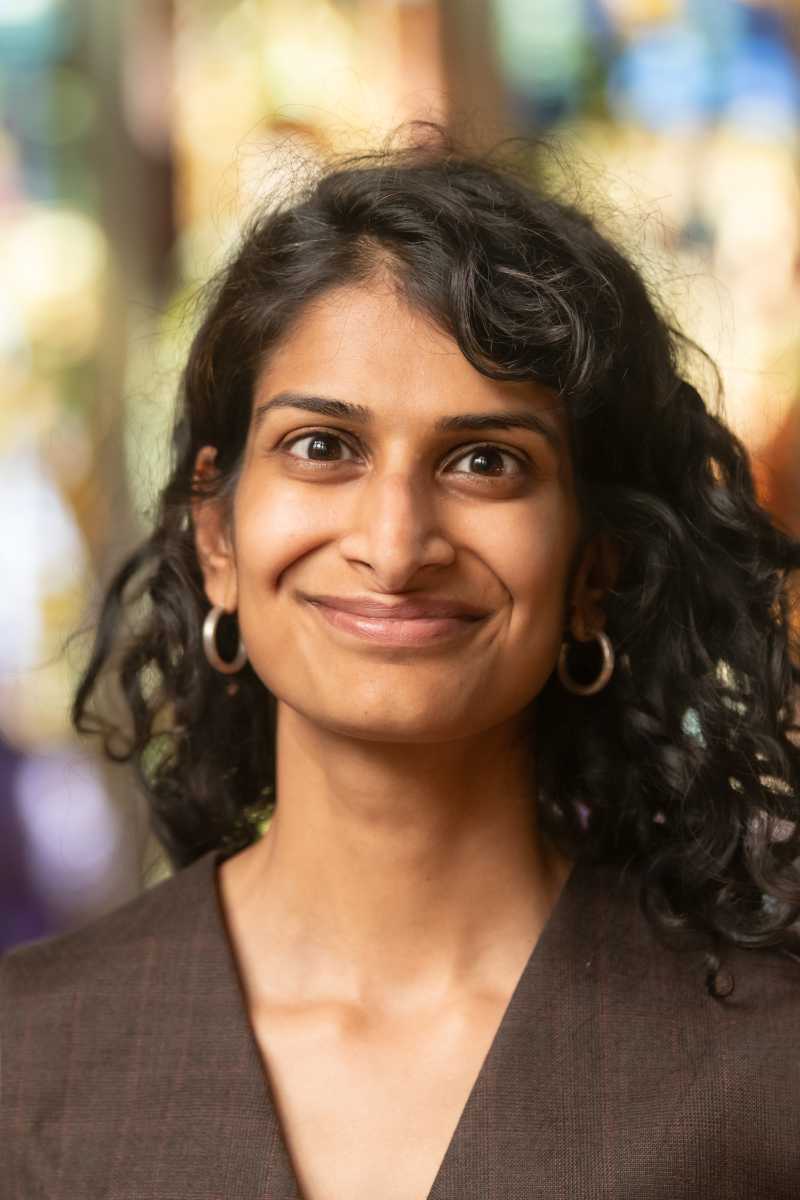
Shivani Radhakrishnan
Assistant Professor of Philosophy
Education: BA, Princeton University; BPhil, Oxford University; PhD, Columbia University
Primary areas of research or creative work: Critical social theory, decolonial philosophy, 19th- and 20th-century Continental thought, feminist theory, psychoanalysis
Description of one course: I’m teaching a class on alienation at the moment. We’re tracing the idea from Kierkegaard and Black existentialism down through indigenous accounts of forced alienation from land. And, of course, we’ll read Marx.
Hobbies: Buzzing social events and spending time on dance floors (I have a real soft spot for disco, deep house, and ’90s hip-hop), but I also have quieter moods, and I like to spend time in the woods, foraging or just hiking, and to garden, especially things that I might cook.
Hometown: Otisville, NY
Why I chose Vassar: Having socially minded students was a huge part of what drew me to Vassar, combined with a thoughtful and supportive philosophy department that thinks critically and globally about the histories of our discipline—all of that is a big part of why I chose Vassar.
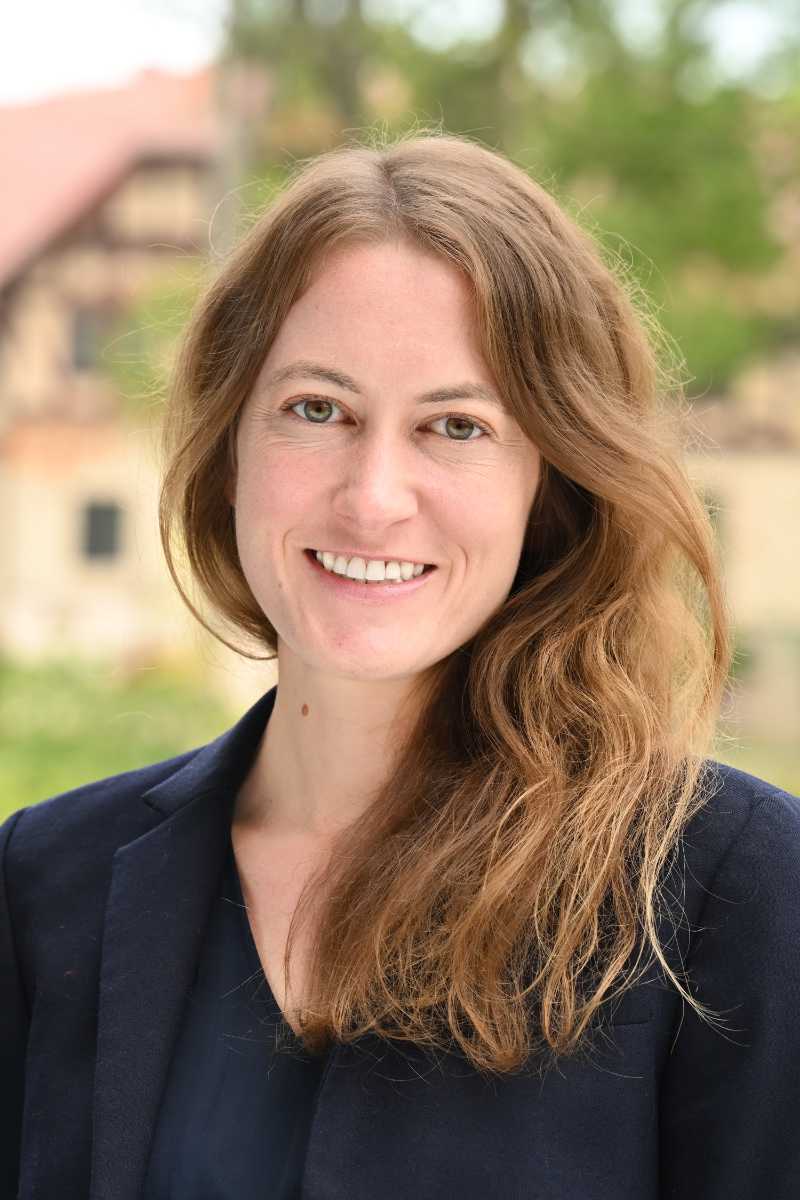
Emily Nardoni
Assistant Professor of Physics and Astronomy
Education: BS, Massachusetts Institute of Technology; PhD, University of California, San Diego
Primary areas of research or creative work: Theoretical particle physics, string theory
Description of one course: This spring I will teach a new class on symmetry in physics, which explores the crucial ways in which symmetry helps physicists understand the universe. We will study the mathematical foundations of symmetry and examine how symmetries manifest in and constrain physical systems, with examples ranging from the crystalline structure of atoms, to the properties of the elementary particles.
Hometown: Burbank, CA
Hobbies: Running, cooking, baking, film
Why I chose Vassar: I have been struck by the vibrancy of the faculty, the enthusiasm and curiosity of the students, the clear emphasis on meaningful engagement with students both in the classroom and in research pursuits, and the support of the College in fostering a vibrant community of scholars. This is an intellectual environment where I hope that both my teaching and research will thrive, and I’m so excited to be joining the Vassar community!
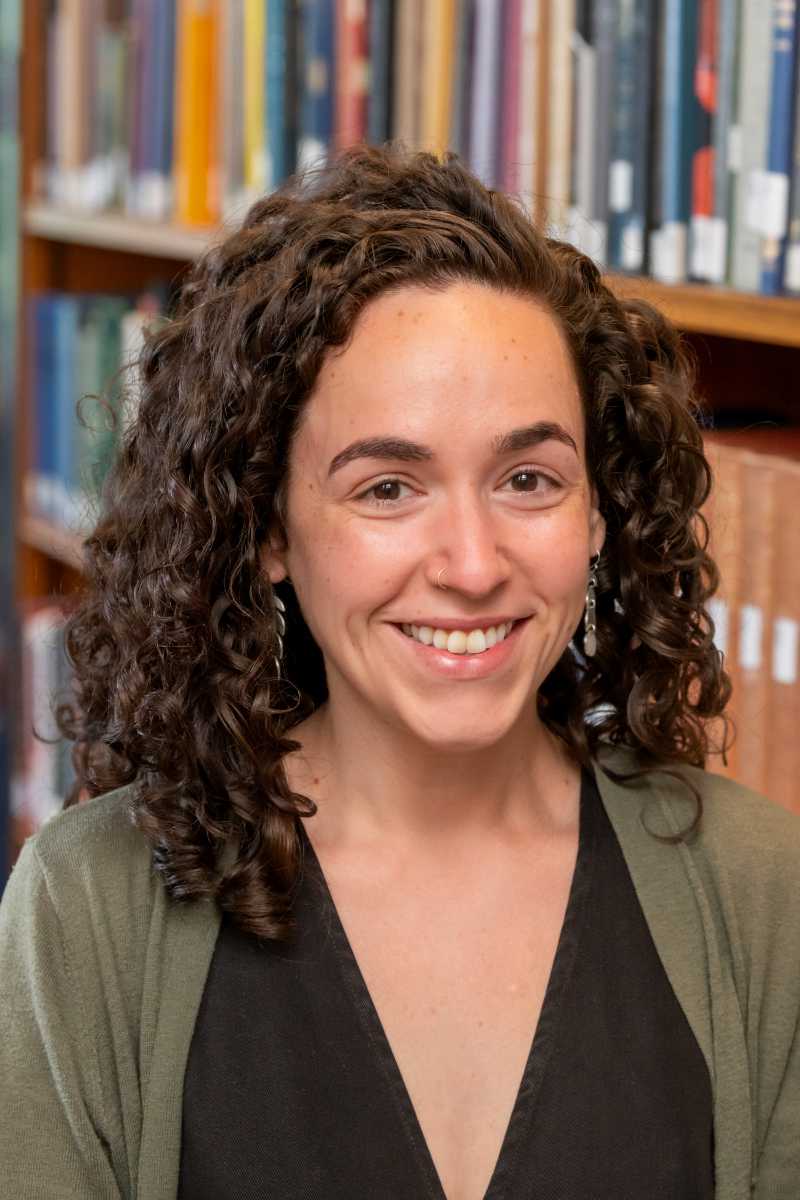
Rebecca Peretz-Lange
Assistant Professor of Psychological Science
Education: BA, Wesleyan University; MS, PhD, Tufts University
Primary area of research or creative work: I use lab-based experiments to study young children’s reasoning about the social world (e.g., their ideas about why social disparities exist and why people have the identities they have), and how that reasoning supports the development of prejudice.
Description of one course: My seminar, Origins of Prejudice, explores what drives the emergence of prejudice in infancy and childhood. It’s easy for many of us to think of social sources of prejudice, like messages from media or parents, but what can be less obvious are the cognitive sources of prejudice—intuitive preferences for the familiar, assumptions that the world is meritocratic, or tendencies to carve the social world into categories. The point isn’t that we are born little bigots, or that tendencies toward bigotry are natural and therefore okay; the point is that it’s crucial to understand the processes driving prejudice in order to effectively intervene on those processes. Students will help the public learn to do this by creating infographics of research findings and sharing them to Instagram @OriginsofPrejudice.
Hometown: I moved around a lot growing up, but I’ve spent most of my adult life in Boston, MA, and consider it my home.
Hobbies: Singing, hiking, yoga, and helping my toddler tone down her aggressive affection toward our cats (“gentle hands!”).
Why I chose Vassar: I loved my own experience at a liberal arts college, which is where I stumbled upon the joy of research quite unexpectedly. I wanted to work in a similar liberal arts college setting, where I could help new generations of scientists catch the “research bug” and enjoy students’ fresh perspectives, intellectual curiosity, and commitments to social progress.
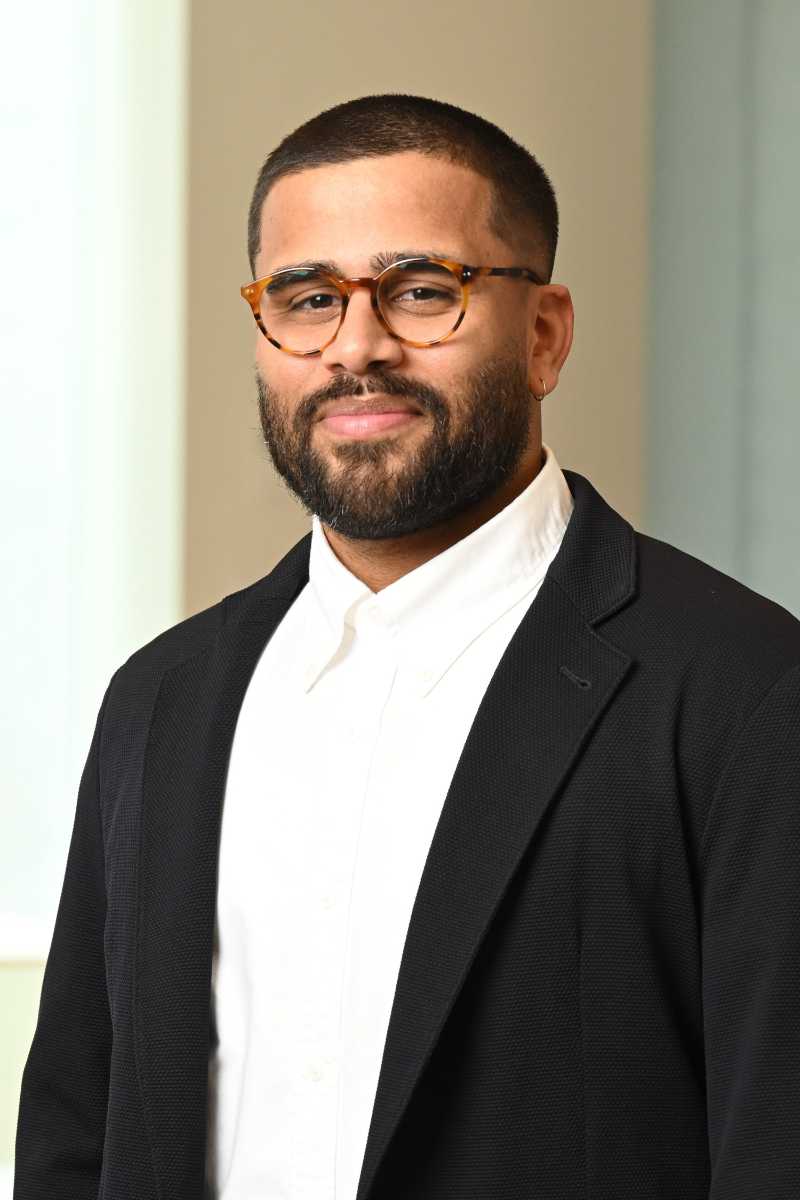
Stephane Andrade
Assistant Professor of Sociology
Education: BA, University of Rhode Island; MA, University of Missouri; MA, MPhil, PhD, Yale University
Primary areas of research or creative work: My research critically examines the nexus of racial inequality and punishment, with a particular focus on how Black men and fathers experience, navigate, and resist the pervasive impacts of state surveillance and criminalization in their daily lives. I am particularly interested in how these forces intersect within the welfare state and the criminal legal system, with child-support enforcement serving as a key entry point. As an urban ethnographer and interdisciplinary scholar, I employ fieldwork, community-based research, and a range of qualitative methodologies to investigate how these structural forces shape and reshape the lived experiences of disadvantaged men and their communities, perpetuating broader systems of social, economic, and racial inequality.
Description of one course: This fall, I am teaching two courses: a 300-level seminar entitled Urban Ethnography and a 200-level course, Race, Inequality, and the Criminal Legal System.
Hometown: Providence, RI
Hobbies: Art and good design, exploring the Hudson Valley, discovering new restaurants and foods, traveling, and staying active (e.g., hiking, running, strength training, pick-up basketball).
Why I chose Vassar: Vassar has been a dream come true! I chose Vassar because it afforded me the ideal environment to both engage in interdisciplinary research and thrive in a liberal arts classroom. The intellectual atmosphere at Vassar is uniquely supportive of scholars who want to explore connections across various disciplines, allowing me to draw from multiple fields in my teaching and research. The small liberal arts model fosters deep, critical thinking and encourages meaningful discussions with students who are eager to engage with complex social issues. Ultimately, it is the kind of academic community where both teaching and scholarship can flourish, and I’m excited to be part of it.